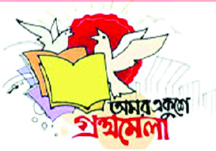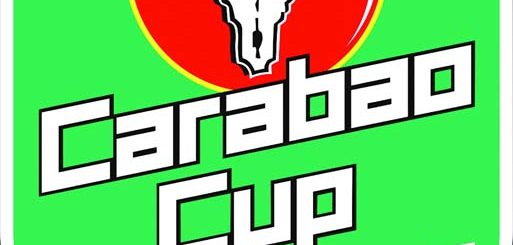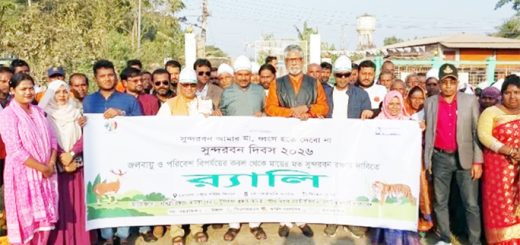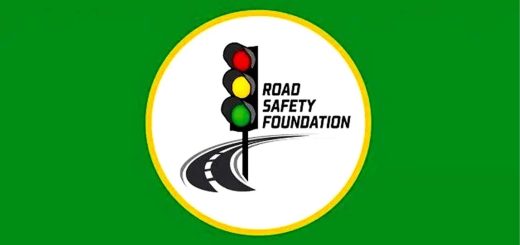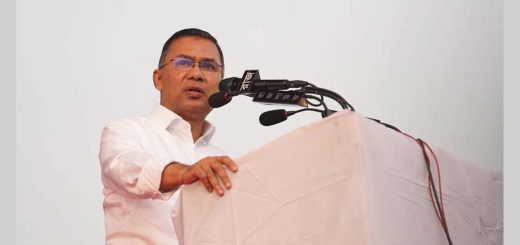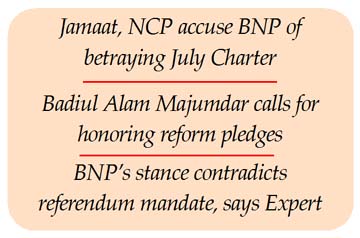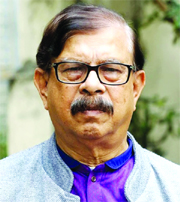Philologist Dr. Muhammad Shahidullah

Badiuzzaman :
Dr. Muhammad Shahidullah (1885-1969) educationist, writer and philologist, was born at Peyara village of 24 Parganas in West Bengal on 10 July 1885. His father, Mafizuddin Ahmad, was a warden at the shrine of Pir Gorachand. But he was able to forsake this hereditary service and devote himself to secular education and research. He learnt Urdu, Persian and Arabic at home and Sanskrit at school. He passed his Entrance examination (1904) from Howrah Zila School and FA (1906) from Presidency College, Calcutta, and took admission in Hughli College (1906-8). After a temporary break of study because of illness, he passed BA with Honours in Sanskrit (1910) from the City College, Calcutta, and MA (1912) in Comparative Philology from the University of Calcutta. He also obtained his BL degree two years later in 1914.
He began teaching in Jessore Zila School (1908-09). After working as Headmaster of Sitakunda High School for some time (1914-1915), he started to practise law at Bashirhat in 24 Parganas. He was elected vice-chairman of the town’s municipality. Later, he worked as Sharatchandra Lahiri Research Fellow (1919-21) under Dinesh Chandra Sen at the University of Calcutta and joined the university of Dhaka as a Lecturer (1921) in Sanskrit and Bangla.
From academic point of view, his life at the University of Dhaka made the most important period of his life. He did research on the origins of the Bangla language. In 1925, he gave his thesis that Bangla as language originated from Gaudi or Magdhi Prakrit.
Muhammad Shahidullah went to Europe for higher studies in 1926, and learnt Vedic Sanskrit, Buddhist Sanskrit, Comparative Philology, and Tibetan and ancient Persian language at University of Paris, and ancient Khotni, ancient Vedic Sanskrit and Prakrit at Freiburg University in Germany.
He received his doctorate from the Sorbonne in Paris in 1928 for his research on the dialects of the Charyapada, the earliest extant specimens of Bangla language. He was the first Indian Muslim to receive the doctorate degree. He also received a diploma for his fundamental research in Phonetics from the University of Paris the same year. After completing his doctorate, he returned home and started teaching. When the Sanskrit and Bangla Department was split into two separate departments, he became head of the Bangla Department in 1937 and retired from this position in 1944.
However, Shahidullah continued to work despite his retirement. He became Principal of Bogra Azizul Huq College after retirement. He then rejoined the Bangla Department of the University of Dhaka as a Supernumerary teacher and taught there for six years as departmental head and Dean of the Faculty of Arts. Besides, he taught part-time at the Law Department (1922-25) and the International Relation Department (as teacher of French) (1953-55). He also worked as head of the Bangla and Sanskrit Department of the University of Rajshahi from 1955-58.
In addition to teaching, he worked as editor of the Urdu Abhidhan Prakalpa (Urdu dictionary project, 1959-60) of the Karachi-based Urdu Development Centre, Purba Pakistani Bhasar Adarsha Abhidhan Prakalpa (Standard dictionary of languages of East Pakistan project, 1960) and Islami Bishwakos Prakalpa (Islamic encyclopaedia project, 1961-64). He was a resident teacher of Salimullah Muslim Hall (1921-25) and provost of Fazlul Huq Muslim Hall (1940-44). He became a member of the Islamic University Commission (1963-64), and of the executive committee of the Islamic Academy (1963-64). He also served as the Chairman of the Bangla Academy Bangla Almanac Arrangement Committee (1963-64). He was also made permanent Chairman of the Adamjee Literature Award and Daud Literature Award committees.
Muhammad Shahidullah played an important role in the language movement. He was the first to establish the reasons why Bangla, instead of Urdu, should be the state language of Pakistan. Earlier, he was Secretary to the Bengal Muslim Literary Society (1911) and had presided over many meetings and conventions, including the second Bengal Muslim Literary Convention (1917), Muslim Literary Society Convention in Dhaka (1926), All-Bengal Muslim Youth Convention in Calcutta (1928), All-India Oriental Studies Convention (Philology, 1941) and East Pakistan Literary Convention (1948). He also represented UNESCO at the International Seminar on Traditional Culture in South-East Asia in Madras and was elected its Chairman.
His writings on language, literature and culture were published in many magazines and newspapers; and he himself edited many such publications. He worked as an Associate Editor of Al Eslam (Islam, 1915) and was joint Editor of Bangiya Mussalman Sahitya Patrika (Literary magazine of the Muslims of Bengal, 1918-21). He edited and published the first children’s magazine of Muslim Bengal, Angur (Grapes, 1920). In addition, he edited a monthly called The Peace (1923), the monthly literary magazine Babgabhumi (The land of Bengal, 1937) and the fortnightly Taqbir (Call, 1947).
Muhammad Shahidullah delved deep into the history of Old and Middle Age Bangla literature, wrote extensively on these subjects, and gave pointers to solve many specificities of Bangla language and literature. He also took active interest in Bangla folk literature. Apart from research works, he wrote for children. He also translated and edited a number of books. Noteworthy among his books are Sindabad Saodagarer Galpa (The stories of the merchant Sindbad, 1922), Bhasa O Sahitya (Language and literature, essays, 1931), Bargala Byakaran (Bangla grammar, 1936), Diwan-i-Hafiz (Poems of Hafiz, translation, 1938), Shikwah O Jawab-i-Shikwah (Questions and their answers, translation from Iqbal, 1942), Rubaiyat-i-Omar Khaiyam (Quatrains of Omar Khayyam, translation, 1942), Essays on Islam (1945), Amader Samasya (Our problems, essays, 1949), Padmavati (Volume I ed, 1950), Bangla Sahityer Katha (History of Bangla literature, Volume I in 1953, Volume II in 1965), Vidyapati Shatak (Collection of Vidyapati’s songs, text analysis, 1954), Bangla Adab Ki Tarikh (History of Bangla literature, essays, in Urdu, 1957), Bangla Sahityer Itihas (History of Bangla literature, 1957), Bangala Bhasar Itibritta (History of Bangla language, 1959), Qur’an Sharif (The Qur’an, 1963), Amarkabya (Unforgettable poetical works, 1963), Sekaler Rupkatha (Fairy tales of ancient time, 1965), etc. The dictionary of regional dialects published under his editorship is another noteworthy work associated with him. He edited Traditional Culture in East Pakistan in collaboration with Muhammad Abdul Hai. His Buddhist Mystic Songs (1960) is a translation and an edited version of the Charyapada. He was the first to note that Charyapada is completely written in Bangla and to highlight the religious philosophy of the work.
He was a pious Muslim, and all his books on religion reflect his deep faith in Islam. He addressed public gatherings at different places to uphold the importance of Islam. He was awarded the ‘Pride of Performance’ Award by the Pakistan government, made Professor Emeritus by the University of Dhaka (1967) and awarded ‘Knight of the Orders of Art and Letters’ by the French government (1967) for his lifetime achievement in research on language and literature.
Popularly known as Jvantapas, or one ardently desirous of attaining knowledge, Shahidullah died in Dhaka on 3 July 1969 and was buried on the campus of Shahidullah Hall of the university.

